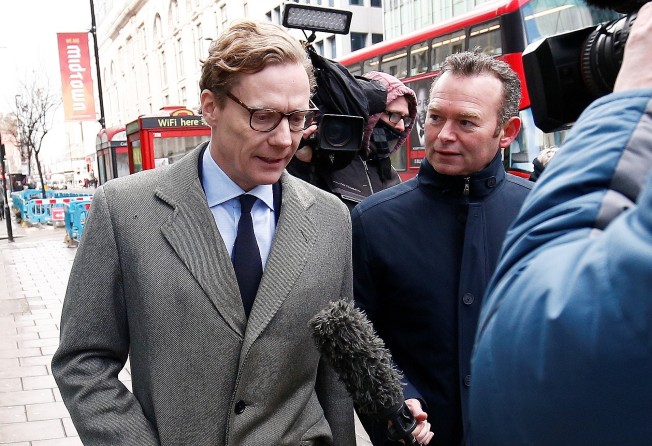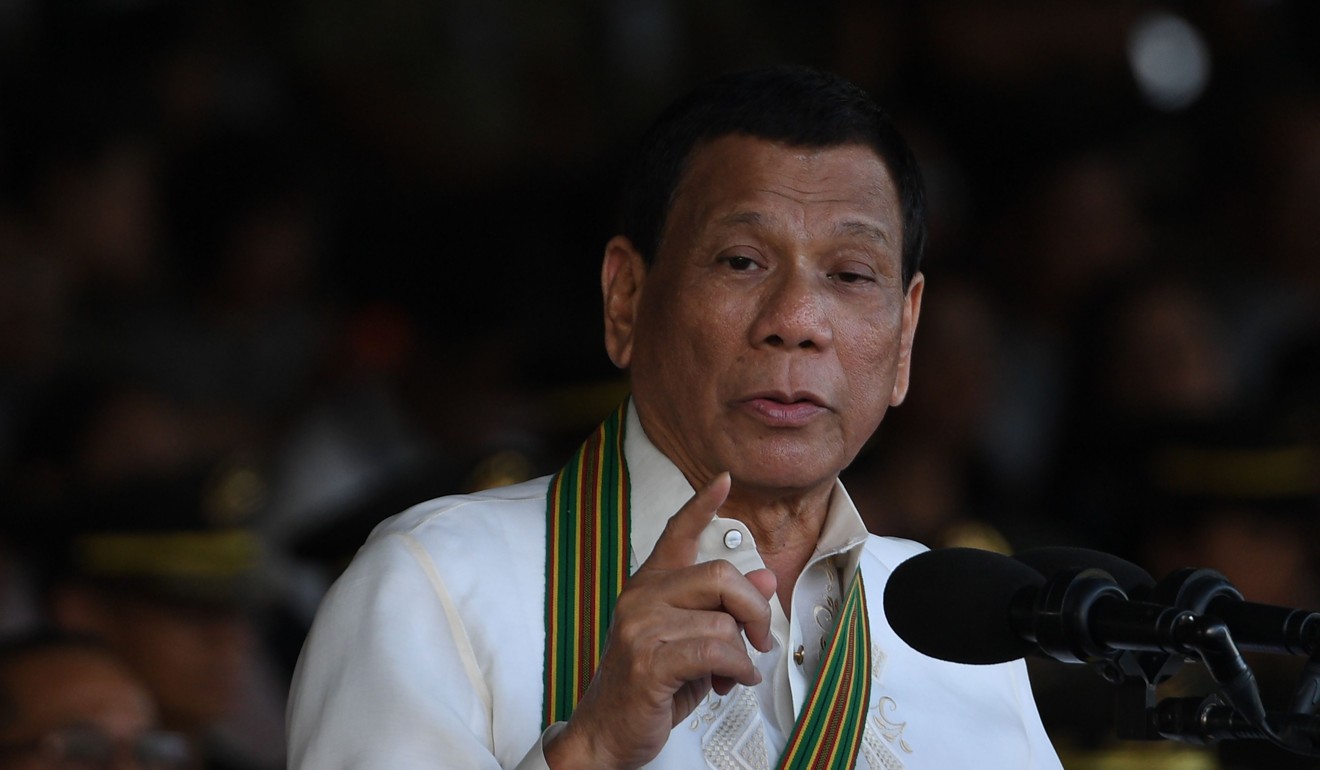Could Cambridge Analytica boss Alexander Nix be probed for meddling in Philippine election?
The firm’s parent company claimed on its website it had worked for a male candidate – believed to be President Rodrigo Duterte – in the 2016 election, perhaps committing the crime of ‘foreign intervention’

Cambridge Analytica’s suspended CEO Alexander Nix could be investigated for meddling in the Philippines’ 2016 presidential election, according to the country’s former polls chief.
Christian Monsod, who once chaired the Commission on Elections said that there were sufficient grounds in an investigative report to Comelect “to conduct a preliminary investigation on whether Strategic Communica–tions Laboratories, the parent company] violated Section 81, including the accountability of any candidate or political party as principal, accomplice or accessory to the crime.”
The South China Morning Post reported last week that SCL had posted on its website that it had helped a Filipino politician, believed to be Rodrigo Duterte, win the presidential race.
“SCL used the cross-cutting issue of crime to rebrand the client as a strong, no-nonsense man of action, who would appeal to the true values of the voters,” the SCL post claimed, although it has since been removed from the website.
Monsod was referring to Section 81 of the Omnibus Election Code which makes the “intervention of foreigners” a crime punishable with up to 12 years in jail. The section states that is unlawful for foreigners to aid any candidate or political party, directly or indirectly, or to take part in or influence an election.
Monsod said the probe could focus on whether SCL and Nix, on the one hand, and Nix’s local “principal, accomplice or accessory to the crime” on the other hand, also violated Section 96 of the Code, which bars any Filipino and local political party from soliciting or receiving “any contribution from a foreigner to influence the results of any election”.
Monsod, who also helped frame the 1987 Philippine Constitution, stressed the word “contribution” does not refer exclusively to money.
“Contributions may include professional services,” he said.
Monsod, however, stressed that for foreign intervention to be considered a crime, it should have happened “during the campaign period, in support of a candidate – one who has filed a certificate of candidacy”.
The campaign period for the 2016 presidential elections was from February 9 to May 7 that year. According to a section in the SCL website, now taken down, among the services offered to clients were “tracking polls” and “opposition intelligence”.
In a separate interview, another source who was once a Comelec Commissioner, agreed with Monsod’s assertion that foreign intervention in elections is a crime.
“The question is, when did this happen? If before the filing of the COC [certificate of candidacy], then it can be dismissed as the person is not yet a candidate,” the source said. “If there’s an expense, and proof of that expense, and not declared, that’s a criminal offence.”

He also said that while the Comelec could start a probe on its own, it would be better if another party filed a complaint on the matter.
SCL had posted on its website that it had a male client running for national office in the Philippines whom it helped “rebrand” into a “strong, no-nonsense man of action, who would appeal to the true values of the voters” by using “the cross-cutting issue of crime”.
SCL did not identify its client by name. However, among the six presidential candidates at that time, two were women. Among the four male candidates, only Duterte made the fight against “crime, drugs and corruption” his main platform.
No one in the Philippines has ever been punished for the crime of foreign intervention. It was made illegal to prevent a repeat of the 1953 election when Edward Landsdale, a CIA operative, meddled and helped elect Ramon Magsaysay.